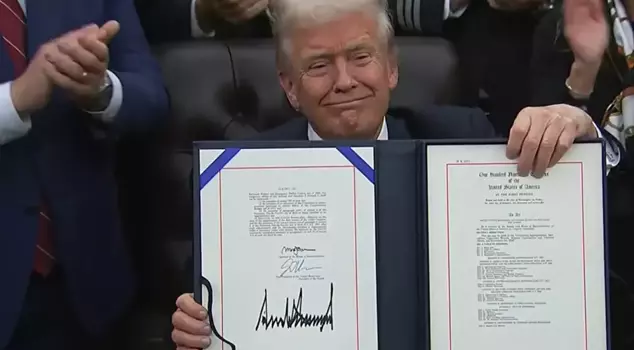
13.11.2025 10:15
In the United States, which experienced the longest government shutdown in its history, the temporary budget bill was approved in the House of Representatives after passing in the Senate. Shortly thereafter, Trump signed the bill, officially reopening the government.
```html
After the approval of the U.S. House of Representatives, U.S. President Donald Trump also signed the temporary budget bill aimed at reopening the federal government, ending the longest shutdown in the country's history.
The budget bill, which provides funding for most federal agencies until January 30 and for some federal agencies throughout the fiscal year, was approved in the House of Representatives with 222 votes in favor and 209 against. Two Republican members of the House opposed the bill, while six Democratic members voted "yes."
After this vote, the bill went to U.S. President Donald Trump's desk for him to sign. Trump signed the budget bill during a ceremony at the White House, and the federal government, which had been closed for 43 days, reopened.
TARGETING DEMOCRATS
In his remarks at the ceremony, Donald Trump held the Democrats responsible for the longest government shutdown in U.S. history, stating, "Today is a great day for our country; we can get back to work now."
Trump expressed that the temporary budget does not finance the government for the entire fiscal year and warned that the Democrats could lead to another government shutdown in a few months. He also argued that the "filibuster," a procedure known for preventing any vote from taking place, should be abolished in Congress.
Trump claimed that the "Obamacare" system, which was enacted during former U.S. President Barack Obama's administration and provides health insurance opportunities for low-income individuals, only benefited insurance companies and did not work in favor of citizens. He proposed that the billions of dollars funneled to insurance companies in this system should be given directly to citizens.
HISTORIC RECORD
The government shut down on October 1 when Congress failed to approve a temporary budget bill to finance the federal government before the new fiscal year began. Federal agencies, which lost their spending authority, suspended their operations; this marked the longest shutdown in the country's history. Democratic and Republican senators reached an agreement on a temporary budget to reopen the government on the 40th day of the shutdown, which was a Sunday.
The retreat of Democratic senators from the condition of guaranteeing the extension of health care subsidies paved the way for the government to reopen.
The bill was also approved in the Senate vote held on Monday night with 60 votes in favor and 40 against.
```